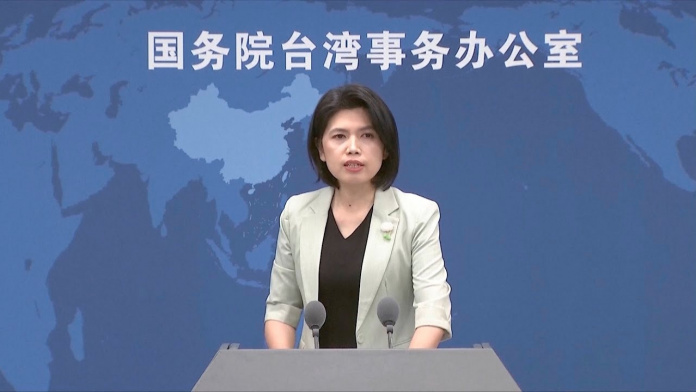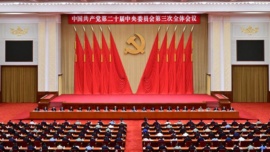The Taiwan Affairs Office of the State Council has expressed support for the Macau and Hong Kong governments to destroy mangoes imported from Taiwan that are tested positive for Covid-19, and indicated that the island is conducting “unreasonable political actions”, regarding its doubts raised over the practice.
The Macau Municipal Affairs Bureau (IAM) has earlier destroyed 50 kilos of mangoes from Taiwan and 605 kilos of Argentinian meat after samples collected from the products tested positive for Covid-19, while the Hong Kong authorities have conducted similar actions on the mangoes imported from Taiwan.
The Taiwanese Council of Agriculture (COA) has later asked Macau’s authorities to provide evidence for claims that Covid-19 samples were detected on a batch of mangoes imported from the island, the Taipei Times reported.
According to the report, COA Minister Chen Chi-chung said that there is no scientific basis for the idea that COVID-19 can be transmitted from plants to humans, and the tests conducted in Taiwan on the mangoes had yielded negative results.
Minister of Taiwan Foreign Affairs, Joseph Wu Jau shieh, has indicated that the operation conducted by the Macau SAR government was an “economic coercion in peculiar & unconvincing disguise”.
Replying to these concerns, the Taiwan Affairs Office of the State Council announced that they support the actions taken by the Macau and Hong Kong SAR governments, and the Taiwan authorities are conducting “unreasonable political actions” and are “pan-politicizing the necessary epidemic prevention measures”.
The Taiwan Affairs Office of the State Council is an administrative agency under the State Council of Mainland China, which is responsible for setting and implementing guidelines and policies related to the Republic of China (Taiwan).
Zhu Fenglian, the spokesperson for the Taiwan Affairs Office of the State Council, said that the SAR government’s actions are in line with the trade inspection and quarantine regulations and usual practices, and such reactions have met the epidemic prevention requirements.
“It is necessary to protect the health and safety of the SAR residents,” Zhu stressed.
The spokesperson also claimed that the Taiwan authorities have also conducted nucleic acid testing on imported goods before, but when things involved the two SARs, Taiwan just started to take “unreasonable political actions” and “maliciously misled” the public with the so-called “international standard” and “economic coercion” that “do not exist at all”.
“What they have done shows that they do not want to solve the problem at all, but to put their own political interests ahead of the interests of the people and industries on the Taiwan island,” Zhu added.
The spokesman for Taiwan’s Central Epidemic Command Center (CECC), Chuang Jen-hsiang, said that currently, only mainland China has found packages of imported food that tested positive, while Taiwan’s Food and Drug Administration also conducted covid tests on imported products but has not found any items that are tested positive.
The World Health Organisation has stated that there is no evidence that people can catch covid from food or food packaging, with the virus rarely spreading through surfaces, and even if it does survive, the traces left on a surface may not be enough to cause an infection.
The organisation has indicated that most transmissions occur when an infected person breathes out tiny droplets that are inhaled by someone close by.
China’s health authority announced on Tuesday that local governments no longer need to test some imported goods for the coronavirus, in a move aimed at reducing the cost of its strict COVID-19 prevention measures.
However, chilled and frozen foods will continue to be tested, but exporters will not face import suspensions when their goods test positive at customs checks.
The country began testing the packaging of chilled and frozen food imports for the virus in June 2020, after a cluster of infections among workers at a wholesale food market in Beijing.





















